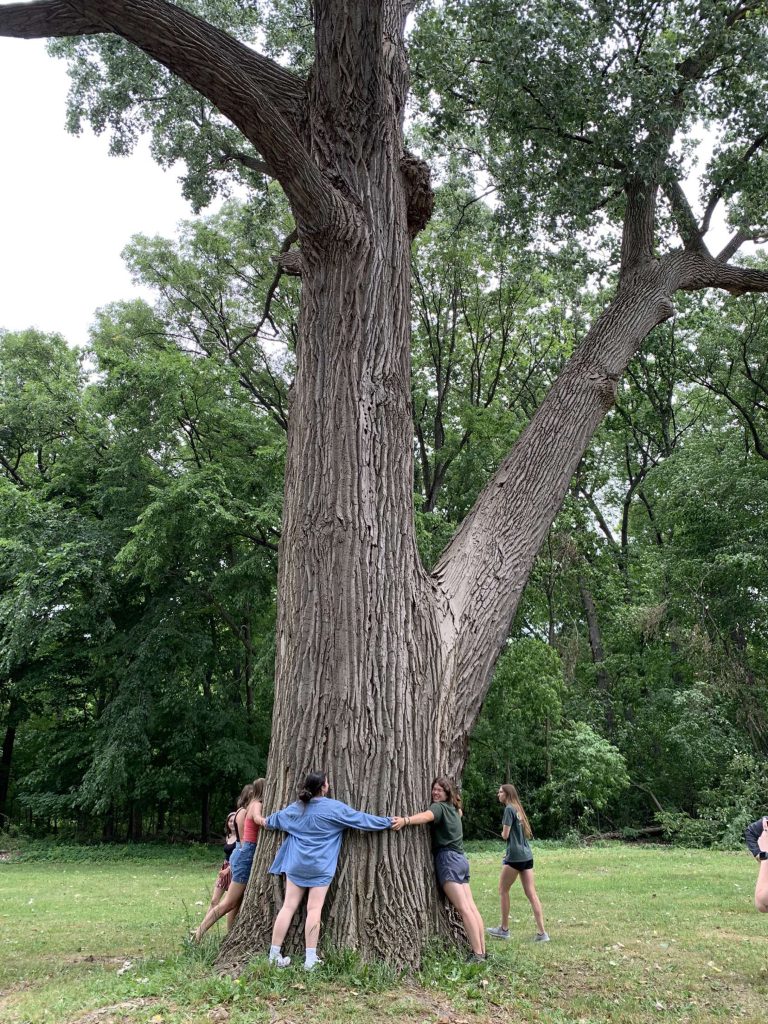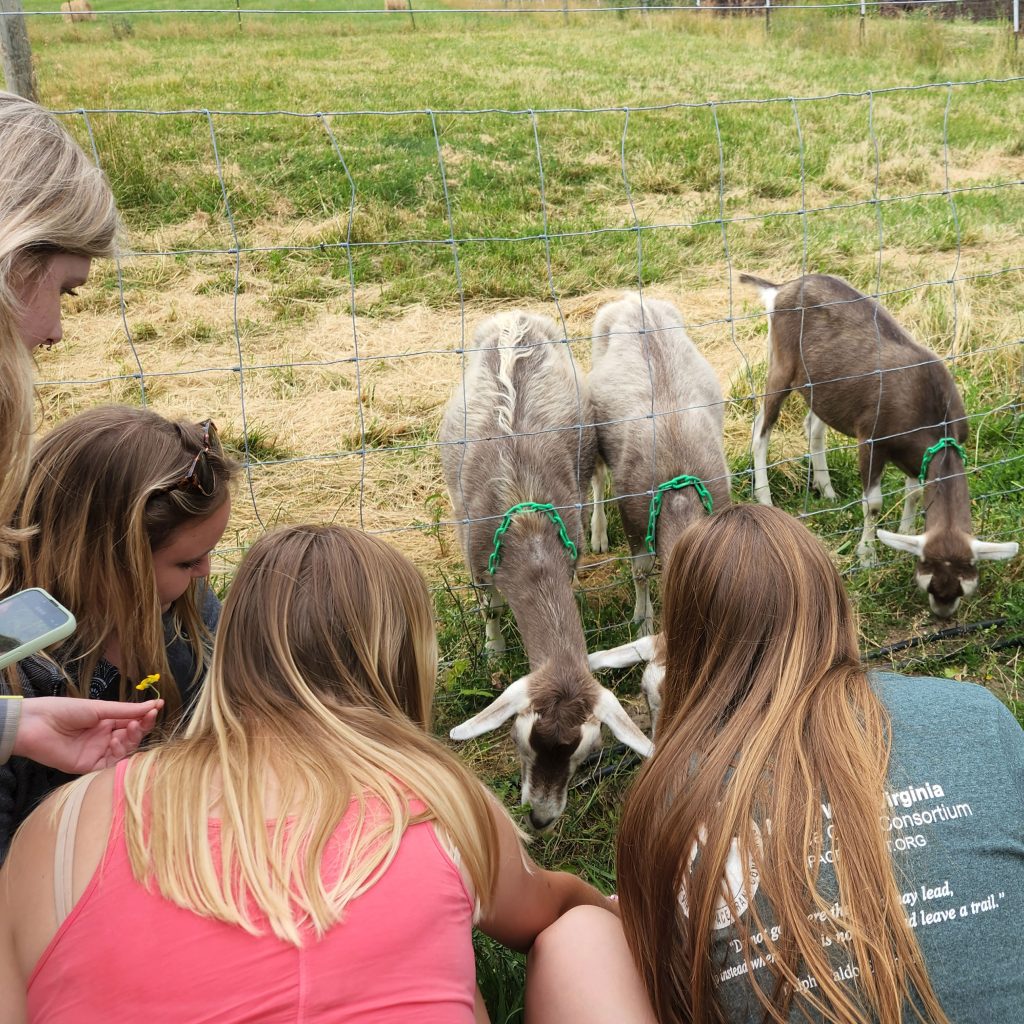About halfway through their summer at the W.K. Kellogg Biological Station, undergraduate researchers and interns took a field trip to Detroit. They met up outside of McCrary Hall early to hop in the vans and take the drive east. The first stop was for the Detroit Exploration and Nature Center, or DEN.

Detroit Exploration and Nature Center
At the DEN, students met with Dr. Jeffrey Ram of Wayne State University. He was very excited to show off the vernal ponds that he was doing research in. Dr. Ram was researching the interactions between the diversity of water mites and mosquitoes. He was able to survey the invertebrates in the ponds to support his study.
Dr. Ram took the students on a quick hike through the woods to the first of the three vernal ponds that the research was taking place in. He explained that his research was done by adding a waterproof light to a trap made by an empty two-liter bottle. The light drew in the midges so they could be studied. The undergraduate students were able to choose the color of light that Dr. Ram added to a bottle to catch the midges.
Dr. Ram also talked to the students about the changing vernal pool levels. The Detroit Exploration and Nature Center hadn’t gotten any rain for three weeks leading up to the trip, so the water levels were the lowest they had been of the whole summer. Jeffrey explained that this was impacting the research, since there was so much less surface area to catch the invertebrates in. Students were then able to ask questions of Dr. Ram about the ponds and impacts of different elements of the experiment.
After the completion of the tour, the students loaded back in the vans to drive to a picnic location. Everyone enjoyed a quick lunch, as well as some tree climbing, and playing in a splash pad. An hour later, everyone gathered back up to travel together to Tollgate Farm.
Tollgate Farm
Once there, they met with Roy Prentice, the farm manager of the MSU Tollgate Farm. Roy took the students on a tour of the children’s garden, highlighting the different sections of the garden that are divided by senses. There was a smelling portion; for fragrant plants, an eating portion; for edible weeds, and a feeling portion; for plants that were soft or spiny.
Roy then took the students to the pasture to see the animals housed by Tollgate. The students were able to feed the goats, pet the sheep, and look out into the field at the cows. The goats were so excited to see people and get fed the fun flowers growing outside of their pens.
Next, the students saw how maple syrup was being made at Tollgate Farms. Roy showed everyone the wooden structure that had just been made the past summer by an Eagle Scout, which housed all of the logs used to make fires to boil the syrup. They then took a forest walk to see the extensive level of connections between the trees that were using gravity to siphon out the sugar from the maple trees. Roy told the students that each quart of syrup required 40 quarts of solution from the trees!
The last portion of the tour showcased what the farm was growing for their Community Supported Agriculture shares. Roy introduced the summer interns helping out with the planting and harvesting, and they showed the students what was being planted where, and why different crops were planted in specific places, like under rainout shelters, or in greenhouses.
Once the tour came to completion, the sky rumbled and opened up to a heavy downpour. Everyone got a quick soaking while heading back to the cars before saying goodbye to Roy and the rest of the farm. The students boarded the vans with an ice-cream stop in East Lansing before heading back to KBS.
~~~~~~~~~~~~~~~~~~~~
This article was written by Alex Sills, the 2022 KBS external communications intern.
~~~~~~~~~~~~~~~~~~~~



A legacy of conservation; a commitment to sustainability.
3700 E. Gull Lake Drive
Hickory Corners, MI 49060
(269) 671-5117
info@kbs.msu.edu